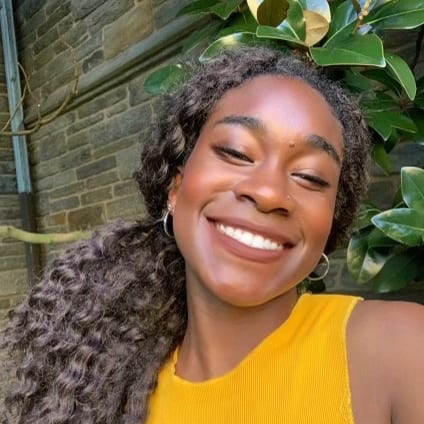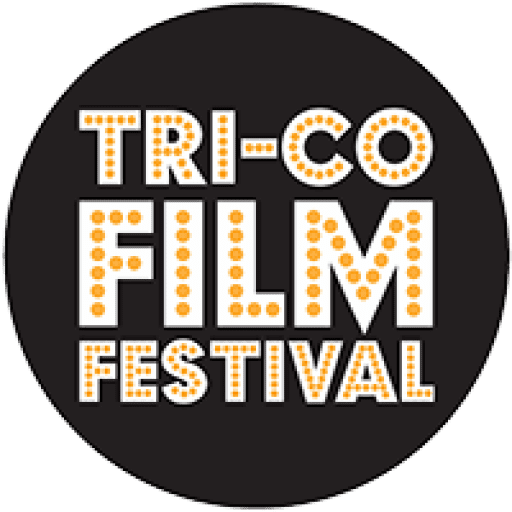
Author: Bria Dinkins
Heidi Saman does it all. She’s a producer at NPR’s Fresh Air, a feature filmmaker, a director for television, and a guest instructor at Swarthmore College’s Film and Media Studies department (not to mention a mother!)
Originally from Anaheim, Saman studied World Literature and Gender Studies undergrad at the University of California, San Diego. After graduation, she moved to Cairo where she worked as a freelance journalist. Heidi then came to Philadelphia to attend Temple University to study film. She was named Filmmaker Magazine’s 25 New Faces to Watch in 2014 and her feature film Namour was acquired and released by Ava DuVernay’s ARRAY. Heidi began teaching at Swarthmore College as a visiting instructor the Spring semester of 2021.
As a student of her’s for this semester, I gained so much confidence and so much skill. Our class was remote and completed entirely through zoom. Despite the physical limitation, Heidi’s warmth and desire to connect came through with such vibrancy. It was a privilege to be her student in my final semester of my undergraduate experience. In both the class setting and in one-on-one conversations, I not only learned about film production technique from her but also from guests Heidi invited who were active in the industry.
In hopes of sharing just a little bit about this all-around amazing person and professional, I asked her to share her thoughts on the following questions.
PROFESSIONAL JOURNEY & WORK
When and how did you decide to start a career in film?
I took an Italian film class in college and saw the film “The Bicycle Thieves” by Vittorio De Sica. I so empathized with that Italian family, how they were struggling to provide for themselves, how life had trapped them into making decisions they weren’t proud of. I completely identified with a family I’d never met before who didn’t speak a language I understood. But I felt like I knew them. After seeing that film, I knew I had to be a part of film in some way.
What were the main turning points in your career?
My decision to go to film school. I was oscillating between film school and journalism school and I’m glad I went with film school. It gave me the time and space to figure out my style and my voice. I spent a lot of my graduate school years by myself — which was really hard — but so critical to developing my craft.
My thesis film, il Shaghala (The Maid), premiering at the Cannes Film Festival and attending the festival for the first time. My film was among so many fantastic films from countries all over the world, and yet we were all speaking the same language. A humbling experience I’ll never forget.
Completing my feature film, Namour. Anyone who completes a feature film is a changed person and this was the case for me too. At every step of the process, it would have been so easy for me to back out of the whole process. Any writing or directing opportunities that have come my way are a result of making Namour.
What is something you did not know about film—or yourself—until diving in? What did you learn from Namour?
This sounds a little naïve, but I didn’t know that I’m really particular about style and images. I thought everyone was like that, but I have a way of seeing and relating to images that reverberates through my body.
From Namour, I learned how to keep going. No matter what. At every step of the way, there were reasons that film would have never been made or completed. No one wanted to fund it, and I took that so personally for a while, and thought I shouldn’t make the film. It wasn’t until I took matters into my own hands and started raising money through Kickstarter, that I realized those “no’s” couldn’t determine my value or the validity of my movie.
Why do you enjoy most/what is most fulfilling about your role as a producer for Fresh Air?
I watch a lot of movies and TV for my job, so I like watching good movies and series and I love talking about them with my colleagues. And I love editing the interviews (which can be 90 min to 2 hours and have to get edited down to 20-44 min), shaping them into what will be the most compelling listen.
How does your work as a radio producer contrast with or compliment working as a director?
My work as a radio producer compliments my work as a director because I know how to work well with a team, which is very similar to being a director. Both jobs require a team of people that need to be collaborating and gelling with one another to create a unified piece of work and I like creating an atmosphere where people want to do their best.
Fresh Air is a national daily show so I’m used to meeting a deadline, often under quite a bit of pressure. That is also similar to being a director and needing to shoot a certain amount of scenes per day, so I’m used to working under pressure.
What drew you to teaching undergraduates and what is your favorite part about teaching?
I love talking about movies and sharing that passion with younger people. I also think younger people have a way of seeing that can be illuminating and insightful. My favorite part of teaching is feeling the students’ passion for film and watching them become more of themselves through their work.
How do you do it all and why? 🙂
Love the smiley face. I married the right person, who is truly supportive and wants me to evolve as an artist. He also splits the household duties, which is so important when you have a family. I have a good support system. I work with kind people and I try to be kind in return. I’ve also done the work on myself (still doing it).
I do it all because I’m curious about this experience we’re all having as humans and I know how finite our time is on this planet. I want to experience as much as I can while I’m still here.
What drives you?
Simplicity. I strive for it in my life and in all aspects of my work. When I edit audio, I’m trying to get to the essence of an interview, and edit out what feels overly thought, extraneous, or not helpful to the portrait that’s being created. And in my creative work, it’s the same thing. It’s easy for scripts and films to get complicated and unnecessarily dense. The hard work is keeping the truth of a story alive in every aspect of the storytelling and staying in touch with that truth as an artist.
Some Words of Wisdom
What are the major keys for success in the film world?
This is a tough one. Have something to say, work with people who are really good at what they do so you can learn from them, and a little bit of luck.
How do you recognize a good potential collaborator?
I listen to how they talk about their previous work experiences, observe how they treat others, and if they enjoy the work.
What advice do you have for women and, specifically, women of color trying to enter the film industry?
Find your tribe, this includes mentors and collaborators. I have a handful of women of color who I know in this business that I often reach out to with questions about salaries, who to work with, etc. They are invaluable to me.
Were you ever worried about not making it? Are you ever scared that your work won’t be what you want it to be? If so, how have you dealt with that fear?
This question implies that I’ve made it , so thank you. “Making it” is a moving target and it’s always changing, but what hasn’t changed for me is the desire to make good work. I am always afraid of making work that won’t be what I want it to be. Some days the fear can paralyze me and most days, I just do the work. I try to see the fear as a compass, and head in its direction, rather than run away from it.
What would you say to people who are interested in filmmaking but do not know if it’s a viable path?
I would say that there are so many types of jobs in filmmaking that you may not even know are jobs, so stay open to the possibilities and work on as many sets to get a sense of where you think you might belong.
How does someone coming from a small, liberal arts school, who may or may have not majored in film, compete with people at bigger universities with well-known programs?
When a film is good, all of those labels disappear. So just make undeniably, good, honest work.
How do you network without feeling icky or like you are a bother?
Be genuinely interested and curious about people. That way, you never have to feel like you’re faking anything.
FUN FACTS:
What’s for breakfast?
Toast with peanut butter, and a green juice I make at home.
Are you an early bird or a night owl?
I was a night owl before having my son, but I’m turning into an early bird. Who knew?
Myers Briggs? (if you know)
I don’t 🙂
What’s your favorite thing about Philadelphia?
There is no artifice. People show you who they are the first time and all the time.
What is something new you would like to try?
Painting.
What do you do outside of work/What hobbies do you have?
I love reading and vintage shopping. And I like walking with no particular purpose.
Where and when do you feel most in the zone?
I feel most in the zone when I’m directing on set. There’s always a lot going on but it always feels like the right place to be.
Favorite film and/or a film that changed the way you approached filmmaking?
Favorite films are hard, but a film that changed the way I approached filmmaking was Agnes Varda’s Cleo from 5 to 7. I saw it at a particular time in my life, when I thought my work had to be political for it to be taken seriously. Cleo from 5 to 7 is about how a woman experiences time as she awaits a cancer prognosis, but I loved that it was personal, funny, tragic, and stylish. This film encouraged me to be myself in all my complications, and to understand that one’s personal story can stand on its own.
